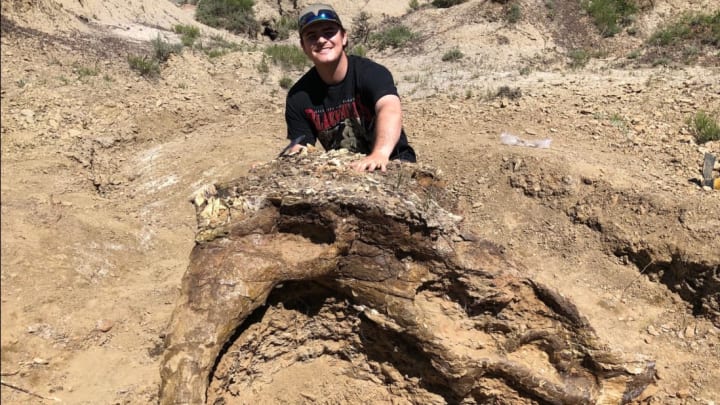College Student Finds a 65-Million-Year-Old Triceratops Skull During Paleontology Dig in North Dakota

Paleontology is often a game of luck, and an undergraduate student at the University of California, Merced recently hit the jackpot. As CBS News reports, Harrison Duran, a fifth-year biology student with an emphasis in ecology and evolutionary biology, was on a dig in the Badlands of North Dakota when he struck upon the partial skull of a 65-million-year-old Triceratops fossil.
Duran trekked out to the Badlands with "bone digger" and Mayville State University biology professor Michael Kjelland expecting to find plant fossils on their two-week dig. Among the fossilized wood and leaves, they discovered something else: the remains of a Triceratops, one of the most iconic dinosaurs of all time.
Duran, whose passion for dinosaurs predates his academic career, was ecstatic. “I can’t quite express my excitement in that moment when we uncovered the skull,” he told UC Merced. “I’ve been obsessed with dinosaurs since I was a kid, so it was a pretty big deal.”
The specimen was named Alice in honor of the owner of the land where it was found. After a week-long excavation, the partial skull was covered in foil and plaster and transported by truck to Kjelland's lab. Kjelland noted that such fossils are susceptible to theft (Triceratops skulls can be worth a quarter-million dollars), but he hopes to eventually make Alice viewable to the public. His ideal scenario would be touring the skull around various locations, but the fossil must be further analyzed and prepared for display before that can happen.
The Dakotas are famous for their dinosaur fossils. Triceratops are especially prevalent there—in South Dakota, the species is the official state fossil.
[h/t CBS News]